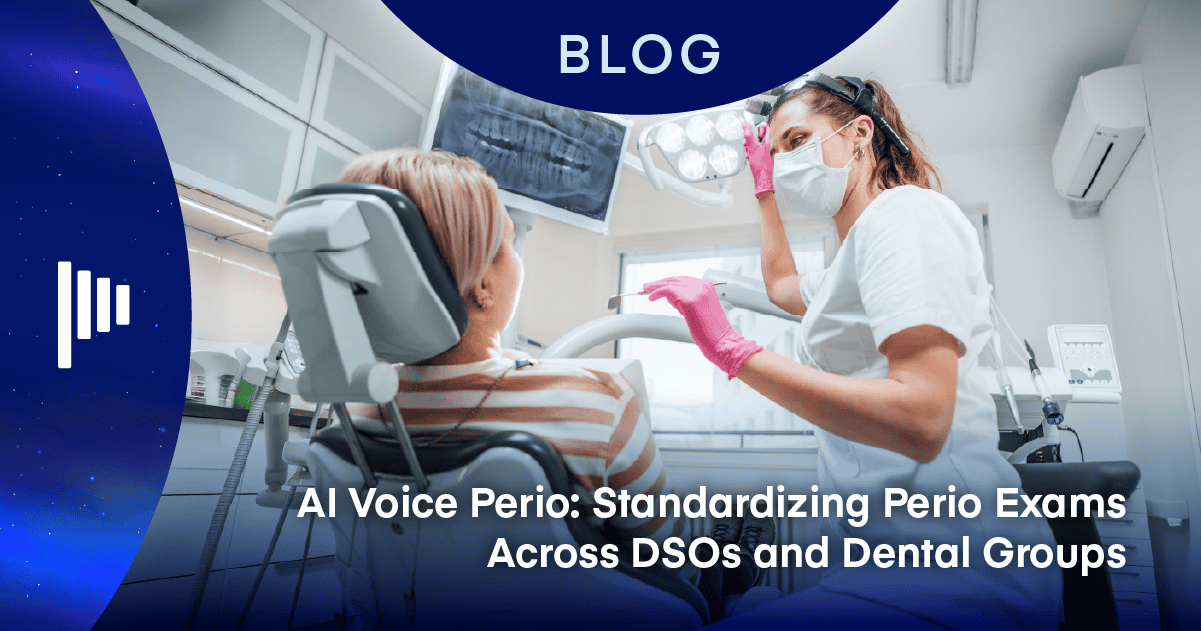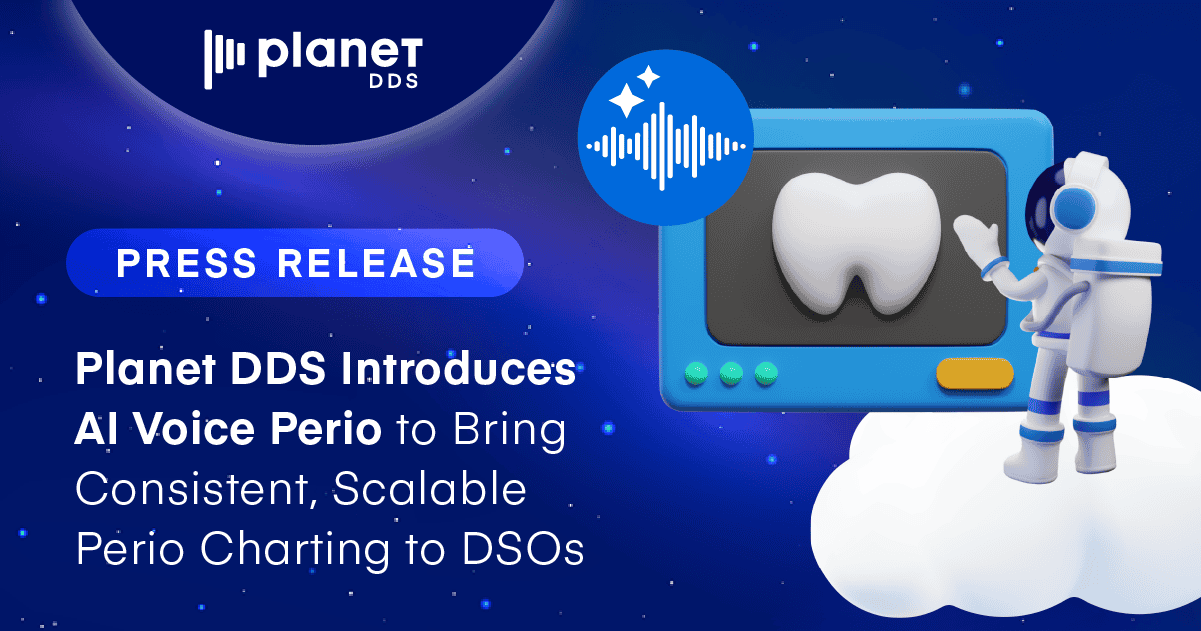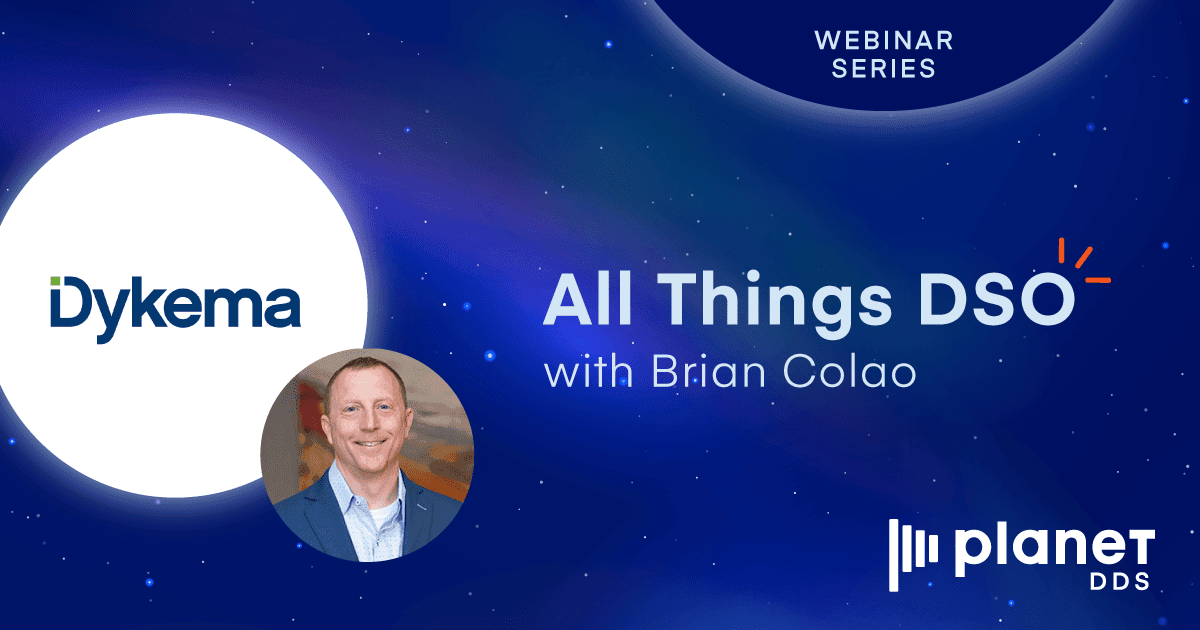Eric Giesecke on Leadership, Culture, and Dental Innovation

Eric Giesecke’s path to CEO at Planet DDS wasn’t traditional, but that’s exactly what makes his perspective unique. With experience leading global construction projects, scaling companies through acquisition, and now steering a leading dental SaaS platform, Eric brings a sharp operational lens to the dental industry’s business needs.
In this Q&A originally featured on Citybiz.com, he shares his insights on leadership, technology adoption, and the future of DSOs and dental groups.
From Engineering to Entrepreneurship
Q. Please tell us a little about your background and what led you to Planet DDS.
A. I began my career with an engineering degree, initially expecting to follow a conventional technical trajectory. However, I quickly discovered that I was most energized by leading teams, implementing change, and building meaningful enterprises. This realization led me to the construction industry, where I managed large-scale international projects. I later pursued an MBA at Harvard Business School, where I became interested in entrepreneurship through the search fund model with the goal of acquiring and operating a single business.
When a former business school colleague and I came across Planet DDS, neither of us had prior experience in dentistry or software. Nevertheless, we saw significant potential in the company. It had a robust product offering, strong culture, a loyal customer base, and was at an early stage in its growth journey.
We embraced the opportunity to grow the business through strategic acquisitions and meet the increasing demand for advanced technology solutions in dentistry. We believed that with the right leadership, investment, and a focus on innovation, Planet DDS could scale significantly. Today, we serve over half of the top dental support organizations (DSOs) in the U.S. and continue to play a pivotal role in the modernization of dental care through cloud-based solutions.
Though my path to CEO was unconventional, it has become one of my greatest strengths. While I began solving engineering problems, I ultimately found that guiding businesses to grow and better serve their customers was the challenge I was truly meant to pursue.
Building Relationships in a New Industry
Q. Coming from outside the dental industry, what was the learning curve like, and how did you approach leading in an unfamiliar space?
A. I entered as an outsider with limited experience in both software and dentistry, so building trust and relationships became my immediate priority. I believe that effective leadership begins with hands-on engagement, so I made a concerted effort to demonstrate my commitment to the organization’s success and long-term vision.
I invested substantial time in engaging with employees, attending training sessions, and observing how we supported our customers. This immersive approach not only informed key product and service decisions, but also helped foster trust with both our team and our customers.
While I was not a subject matter expert initially, I brought relevant strengths in process optimization, organizational design, and strategic execution. Over time, working closely with the team helped shift early skepticism into mutual respect. Many of the original team members remain with us today, continuing to help build a company we’re all proud of.
Lessons in Leadership and Guiding Principles
Q. Your leadership journey has included managing international construction projects and scaling companies through acquisition. How have those earlier experiences influenced how you build and lead teams today?
A. My experiences in Afghanistan and Egypt provided invaluable lessons in leadership, resilience, and accountability. At a young age, I managed projects beyond my formal experience, which pushed me to listen, learn from others, and lead by example. Later, I acquired and scaled a bottleless water cooler company, ultimately selling it in 2017. That experience confirmed my passion for building businesses directly, rather than solely advising or investing in them.
Three leadership values have remained constant throughout my journey: a willingness to engage in the work, humility, and authenticity. These principles continue to guide my leadership approach and have been instrumental in fostering innovation, collaboration, and resilience at Planet DDS.
Maintaining Culture Through Growth and Change
Q. Company culture often gets harder to maintain as a business grows. What steps have you taken to preserve the culture at Planet DDS while expanding through acquisitions and new product development?
A. Maintaining a strong and values-driven culture has been a central focus as Planet DDS has scaled. Our core values, including collaboration, accountability, authenticity, empathy, and trustworthiness, serve as the foundation of our workplace environment.
We’ve worked intentionally to preserve a culture of self-accountability and cross-functional collaboration while avoiding unnecessary bureaucracy. This enables our team members to feel empowered and make meaningful contributions regardless of their role or tenure.
Early hires and foundational team members were instrumental in shaping our culture, driving innovation, and overcoming challenges. We continue to prioritize hiring individuals who not only bring the necessary expertise but also align with our values and mission.
Modernizing Dental Technology to Meet Demands
Q. Technology in dentistry has historically lagged behind other industries. What do you see as the biggest opportunities—and obstacles—when it comes to modernizing the space?
A. While other industries have embraced cloud computing, open ecosystems, and AI-driven automation, many dental practices are still operating on fragmented, legacy systems that were never built to scale. These systems trap data in silos, create operational bottlenecks, and limit a practice’s ability to grow, adapt, or deliver the kind of patient experience modern consumers expect.
At Planet DDS, we believe dental software is broken—and we’re working to fix it. That means more than just moving to the cloud. It’s about giving practices the ability to choose best-in-class tools that integrate seamlessly, automate repetitive tasks, and unlock data-driven insights that improve care and streamline operations.
The biggest obstacle isn’t just the technology but the pace of adoption. Dentistry is a relationship-driven field, and many organizations are understandably cautious about disrupting workflows that have worked for years. But that’s also the opportunity: with the right platform, modernization doesn’t have to be disruptive. It can be empowering. Tools like our DentalOS platform are built to support growth by meeting practices where they are, offering flexibility and interoperability instead of a one-size-fits-all solution.
Modernizing dental tech is ultimately about helping practices work smarter, not harder. The practices that embrace this shift will be the ones best positioned for long-term success.
Creating an Open DentalOS Platform
Q. What has been your guiding philosophy when evaluating and integrating technologies like AI into your platform? How do you distinguish between hype and real value?
A. My approach to evaluating and integrating new technologies is rooted in solving real, operational challenges for dental practices. We focus on tools that drive measurable improvements in efficiency, scalability, and patient experience. Rather than chasing trends, we prioritize solutions that align with the day-to-day needs of providers and support sustainable growth.
A key part of that strategy is building and supporting an open, extensible platform. With DentalOS, we’ve created a cloud-based infrastructure designed to integrate seamlessly with a wide range of third-party tools through open APIs. This allows dental organizations to customize their technology stack, connect systems more effectively, and reduce the friction that often comes with legacy or siloed software.
By prioritizing interoperability and flexibility, we ensure that the technologies we adopt and offer can grow alongside our customers. Whether it’s improving operational workflows, enhancing patient engagement, or simplifying administrative processes, our focus remains on delivering practical, integrated solutions that make a meaningful impact.
Supporting DSO and Dental Group Growth
Q. The dental industry continues to see significant consolidation, with more DSOs and group practices emerging. How do you see Planet DDS supporting this trend and meeting the evolving needs of larger, multi-location organizations?
A. Planet DDS is well-positioned to support ongoing consolidation in the dental industry through cloud-based, enterprise-grade solutions that are specifically designed for multi-location organizations. As DSOs scale, we provide the tools necessary to centralize operations, standardize processes, and maintain consistency in care delivery across locations.
Our platform simplifies complex workflows, supports collaboration across teams, and enables greater visibility into business performance, helping dental organizations operate more efficiently and grow with confidence. Our investment in open architecture and integration capabilities also ensures compatibility with a wide range of technologies already in use by larger groups.
In addition to serving established DSOs, we are also focused on supporting early-stage dental groups through our Launchpad Program. This initiative is designed to help emerging multi-location practices lay the groundwork for scalable expansion. Launchpad offers access to enterprise-level technology bundled with implementation support, training, and flexible pricing options that lower the barrier to entry for growing practices.
Participants can choose from curated technology packages aligned with their operational needs and growth objectives. The program includes tools for practice management, imaging, analytics, and patient communication, along with structured onboarding and expert guidance to ensure long-term success.
Through both our core platform and strategic programs like Launchpad, Planet DDS is committed to empowering dental organizations at every stage of growth, from new groups building their foundation to mature DSOs optimizing at scale.
Insights from 2025 Dental Industry Outlook
Q. Planet DDS recently released its 2025 Dental Industry Outlook Report. What were some of the biggest takeaways for you personally as a leader in this space?
A. One of the biggest takeaways for me from the 2025 Dental Industry Outlook Report was the resilience of dental practices amid economic challenges. The fact that 60% reported same-store production growth in 2024 demonstrates the industry’s adaptability.
Additionally, I was particularly struck by the disparity between case acceptance and completion. With acceptance rates between 40% to 70% and completion at only 42%, there’s a clear opportunity for improvement. Technology, patient education, and workflow enhancements can help close that gap.
Finally, the ongoing difficulty in hiring hygienists—reported by 91% of practices—highlights the need for solutions that enable teams to operate more efficiently and sustainably. As a leader in this space, it’s a call to action for us to keep innovating and providing solutions that help practices stay productive, efficient, and patient-focused.
Q. The report highlights operational inefficiencies, staffing shortages, and technology adoption trends. What advice would you offer to dental group leaders trying to navigate these overlapping challenges?
A. The 2025 Dental Industry Outlook Report clearly illustrates how operational inefficiencies, staffing shortages, and the rapid pace of technology adoption are colliding to create a complex environment for dental group leaders. My advice is to focus on integration, optimization, and talent development in these three ways:
1. Eliminate bottlenecks with connected systems.
Implement connected platforms and automation to eliminate administrative bottlenecks. The report highlights that AI and APIs are dramatically improving areas like revenue cycle management, insurance verification, and scheduling, freeing up staff to focus on patient care and growth initiatives.
2. Focus on outcomes, not just tools.
Move beyond using technology solely for innovation’s sake and use it to optimize outcomes. Many DSOs are shifting from adopting new tools to refining their use, ensuring they deliver measurable ROI, reduce case leakage, and support better decision-making through real-time analytics.
3. Empower teams amid staffing challenges.
In the face of persistent hygienist shortages and a tightening labor market, focus on empowering your teams. That includes upskilling, building a strong internal culture, and leveraging hybrid staffing models where possible. Even small workflow changes, like automating payment posting or implementing AI-enabled call centers, can reduce the need for additional hires while increasing productivity.
Ultimately, the DSOs that will thrive are the ones that best align people, processes, and platforms. This moment demands both strategic discipline and a willingness to innovate, and Planet DDS is committed to helping our partners do both.
Take the Next Step Toward Scalable Growth
Eric Giesecke’s perspective blends operational experience with a clear understanding of what dental organizations need to scale effectively. His focus on culture, adaptability, and purposeful technology adoption offers a framework that resonates across both emerging dental groups and established DSOs. As challenges in staffing, infrastructure, and patient expectations persist, the right platform can create space for sustainable growth.
Contact Planet DDS to explore how our dental practice management software solutions can help support your organization’s next phase.



